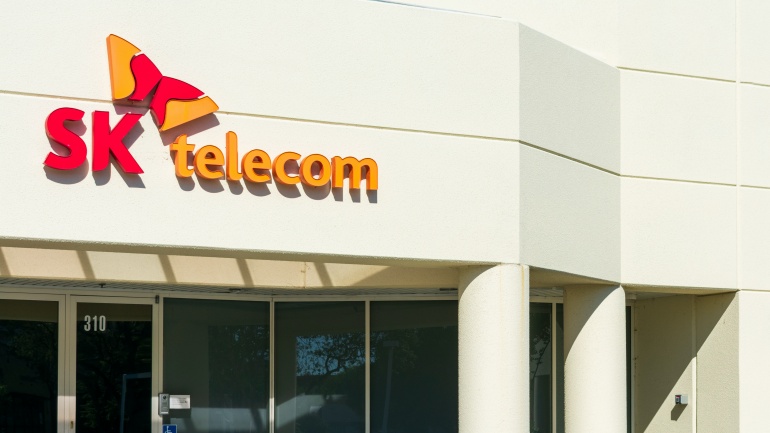The Federal Communications Commission (FCC) has named Kaspersky Lab, a Moscow-based cybersecurity business and developer of popular antivirus software, as one of the organizations posing an unacceptable danger to US national security. Kaspersky is the first Russian company to be added to the list, which is currently dominated by Chinese telecoms companies. The FCC has now released its most recent list of untrustworthy vendors, which includes, for the first time, a non-Chinese company: Kaspersky. Kaspersky joins Huawei Technologies, ZTE Corporation, Hytera, Hangzhou Hikvision Digital Technology Company, Dahua Technology Company, China Telecom (Americas) and China Mobile International USA on the list. Once a company has been included on the list, it is illegal for that organization to use federal subsidies, which are distributed through the FCC’s $8 billion yearly Universal Service Fund, or to buy any of its products or services. Domestic consumers, with the exception of government employees,…
SK Telecom (SKT), South Korea’s largest wireless telecommunications operator, has announced its participation in CES 2022, the world’s largest IT and home appliance exhibition. The expo will be held in Las Vegas from January 5 to 8, 2022, and is to showcase green Information and Communications Technology (ICT). Because AI and telecommunications networks are at the heart of ICT innovation, they are also one of the major sources of pollution due to their high-power consumption. As a result, SKT is hastening an ICT revolution by developing and deploying low-power, high-efficiency semiconductors and energy-saving telecommunications network technologies. SK Telecom will share an exhibition stand with SK Inc., SK Innovation, SK Hynix, SK E&S and SK Ecoplant at the upcoming expo to demonstrate various green ICT technologies and provide visitors the opportunity to experience their revolutionary, sustainable technology. The theme of their booth is the 2030 SK Net-Zero Declaration. SKT…
Samsung to undertake a structural reorganization Samsung has announced yet another dramatic reorganization, this time separating the corporation into just two units: Device Solutions, which handles semiconductors, and the SET Division, which includes the mobile, consumer and television businesses. The reorganization looks to be strategic, indicating a change in focusing on the highly successful semiconductor market. Consolidating the consumer electronics and mobile companies should assist to streamline the company’s overall operations and improve synergies across the many sectors. Read more at: https://tinyurl.com/4e78wsfd AT&T to upgrade US Coast Guard network The Defense Information Systems Agency has selected AT&T to combine and enhance the US Coast Guard’s diverse data networks, awarding the company a $161 million, 11-year contract. AT&T will provide an IP-based Wide Area Network as well as ethernet, virtual private networking, private lines, fixed wireless, optical wavelength and commercial satellite connectivity to the Coast Guard. The contract was granted as…
Verizon gets approval for TracFone purchase Verizon stated in September 2020 that it will attempt to acquire TracFone Wireless, a pre-paid mobile phone operator, for $6.25 billion. The FCC approved the transaction last week, attaching restrictions that would safeguard TracFone customers in a variety of ways, including ensuring inexpensive 5G handsets and avoiding price rises, all of which will be evaluated on a regular basis by an independent agency. Verizon is also required to participate in the Lifeline program, which provides subsidies to low-income subscribers. TracFone is now one of the major carriers supporting the Lifeline program, with 1.7 million low-income subscribers participating across the country. Read more at: https://tinyurl.com/jxrh6p5v Tata Communications launches GlobalRapide Tata Communications, a worldwide digital ecosystem facilitator, has announced Tata Communications GlobalRapide, an end-to-end managed UCaaS that enables organizations to provide workers with technologically enhanced, sophisticated and intelligent collaboration experiences. With this new solution, Tata Communications…
OneWeb launches 34 more broadband satellites OneWeb has reported the successful launch of 34 additional low Earth orbit (LEO) satellites, increasing the total deployment to 288. The company plans to grow its fleet to 648 satellites by the end of next year in order to provide worldwide coverage. The rollout comes after the conclusion of OneWeb’s Five to 50 mission, and it bodes well for the promise of a commercial service later this year, followed by a worldwide service in 2022. The forthcoming 648-strong LEO fleet claims data speed of up to 195mbps, with latency as low as 50ms. Read more at: https://tinyurl.com/cnpshnse Comcast acquires Masergy Comcast Business has agreed to purchase Masergy, a cloud and software-defined networking business that provides a portfolio of managed services such as SD-WAN, unified communications-as-a-service, call center-as-a-service and security. The purchase price was not revealed. Comcast’s goal with this acquisition is to enhance its…
After the British Competition & Market Authority (CMA) uncovered and voiced severe competition concerns, the planned 40-billion-dollar merger between American chipmaker Nvidia and Arm is at risk. The CMA has expressed apprehension that the proposed relationship between Nvidia and the UK chip specialist Arm might be motivated by and be able to limit or even restrict access to the intellectual property (IP) of Arm. Currently, this technology is utilized to make semiconductor chips by firms that compete with Nvidia. The potential absence of competition could interfere with innovation in various industries, including data centers and the Internet of Things (IoT). This might lead to products that are more costly or of reduced quality. The CEO of the CMA Andrea Coscelli said: “We’re concerned that Nvidia controlling Arm could create real problems for NVIDIA’s rivals by limiting their access to key technologies, and ultimately stifling innovation across a…
SK Telecom, the top mobile operator in South Korea, has teamed up with its security subsidiary ADT Caps Co. and local video management solutions company Innodep Inc. to develop an artificial intelligence (AI) solution to meet the growing demand for efficient and advanced video analysis services. Under the agreement, the trio will develop services to effectively manage video surveillance systems in the private and public sectors of the growing local market. The ultimate goal of the partnership is to create real-time security services for the public and industry, while addressing existing defects in the video analysis systems, such as false alarms. As the deployment of CCTV in the public and private sectors is expanding rather swiftly to enhance safety and security, SKT said the solution will increase cost-effectiveness and accuracy by optimizing its AI chip and algorithms. This solution will be linked to Innodep’s intelligent management platform and…
Facebook, telcos to build a huge subsea cable for Africa and the Middle East Facebook, together with a group of telecom companies, including Vodafone, Orange, STC, China Mobile International, MTN GlobalConnect, Telecom Egypt, and WIOCC, will build a subsea cable system that is claimed to be one of the largest in the world. The project is called 2Africa and will cover 37,000 km of cables interconnecting Europe (eastward via Egypt), the Middle East (via Saudi Arabia), and 21 landings in 16 countries in Africa. The system is expected to go live in 2023/4, delivering more than the total combined capacity of all subsea cables serving Africa today, with a design capacity of up to 180 Tbps. Read more at https://tinyurl.com/yahgfe8g Workvivo raises $16 million to reinvent the intranet in the age of Slack and Zoom The Irish startup Workvivo, an employee communications platform, has raised USD 16 million in a Series A…
Google rolls out BeyondCorp for secure remote network access without a VPN Google has launched BeyondCorp Remote Access, a new security service designed to provide remote access to internal systems without using a virtual private network (VPN). This new cloud-native security product is based on a “zero-trust approach” and is founded on a system that Google originally built for internal use almost a decade ago. Google said that when the number of remote connections suddenly increases, the VPN architecture may not be able to handle the load. BeyondCorp Remote Access includes a database of every device authorized to connect, a security certificate installed on that device, and integration with a human resources database containing information about usernames and group memberships. Read more at https://tinyurl.com/ya4hhtsk Zoom adds encryption as it passes 300 million daily users Zoom Video Communications has launched an update of its virtual meetings software, adding encryption and new…
Apple now owns Intel’s mobile modem business Intel, a leader in the semiconductor industry, has completed the sale of the majority of its smartphone modem business to Apple. The company said this transaction enables it to focus on developing 5G network technology while maintaining the ability to create modems for non-smartphone applications, such as PCs, Internet of Things (IoT) devices and autonomous vehicles. Apple now uses Qualcomm for 4G LTE and 5G modems for iPhones. With this acquisition, Apple is planning to develop its own modems for smartphones in 2021. Read more at: https://tinyurl.com/rqmu724 Orange unveils new five-year grand plan Orange, a French multinational telecommunications corporation, has introduced “Engage 2025”, its new strategy that follows on from the Essentials 2020 plan launched in 2015. The corporation has revealed its goals for the coming years, emphasizing that its business model will be guided by social and environmental responsibility. Considering the operator’s business…













